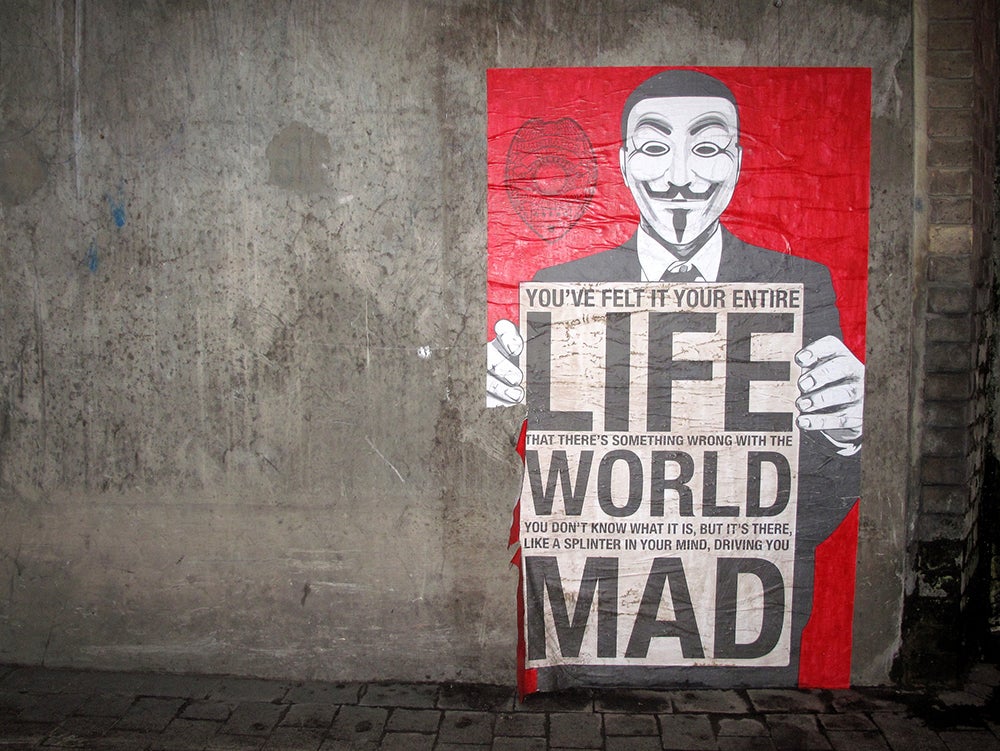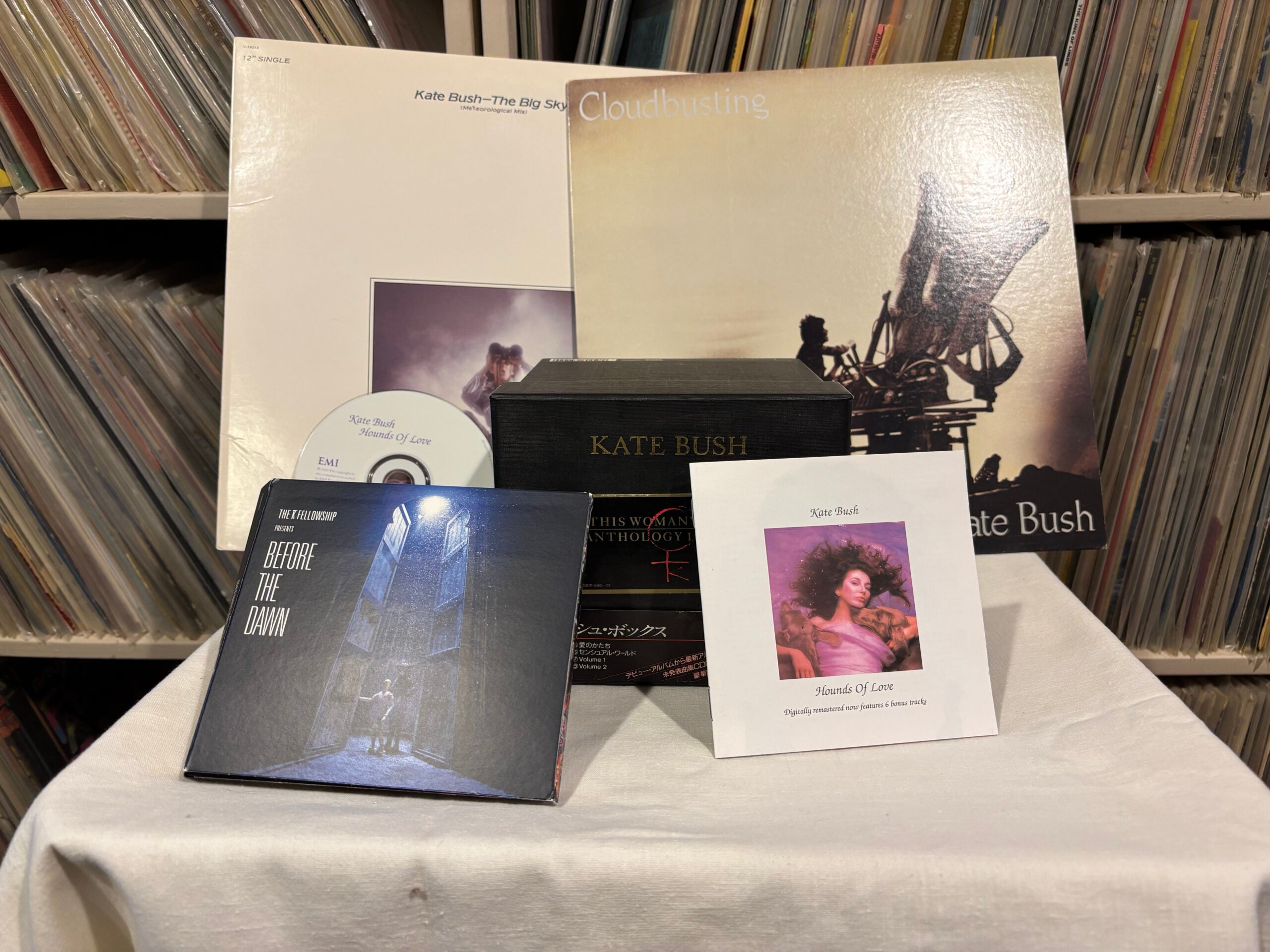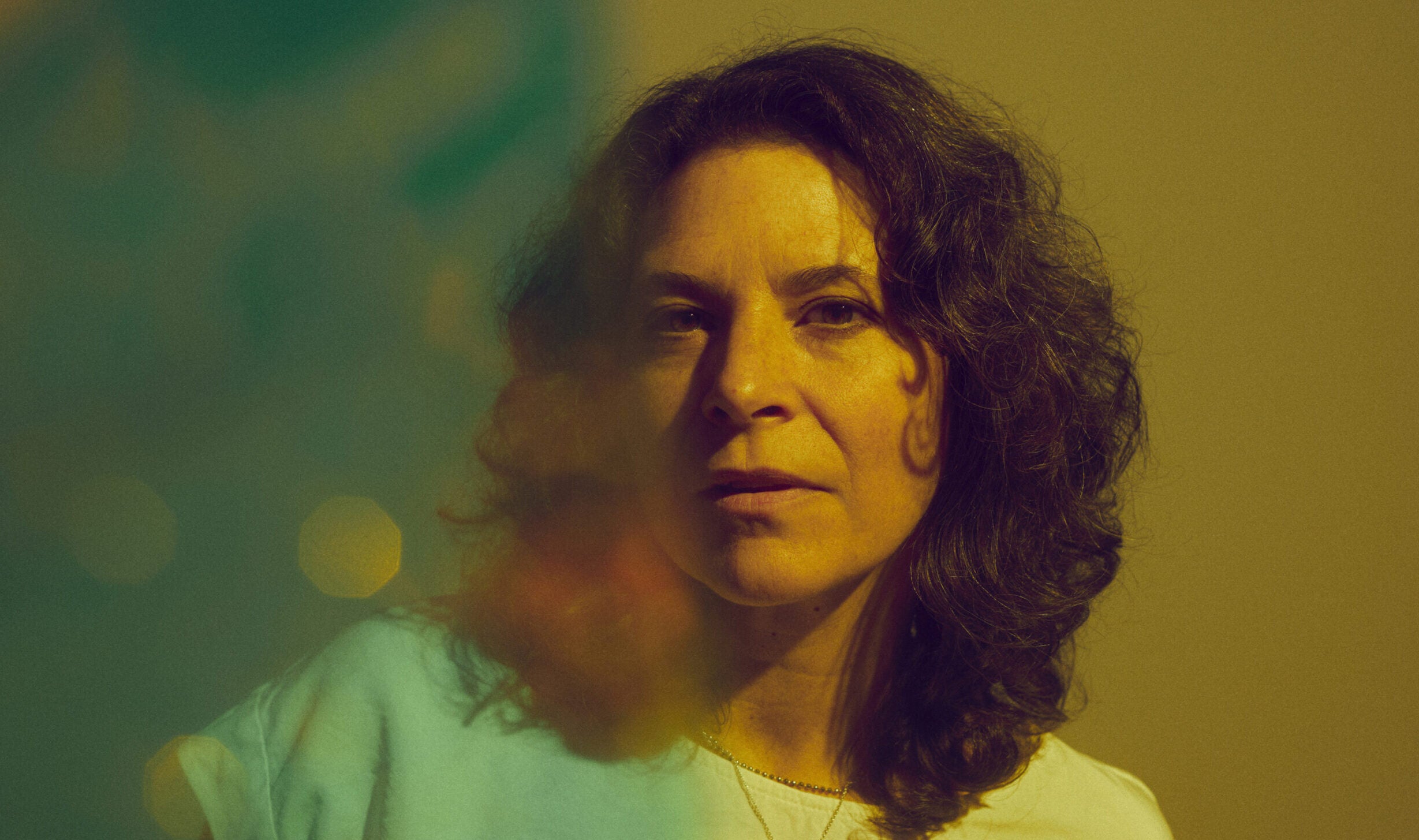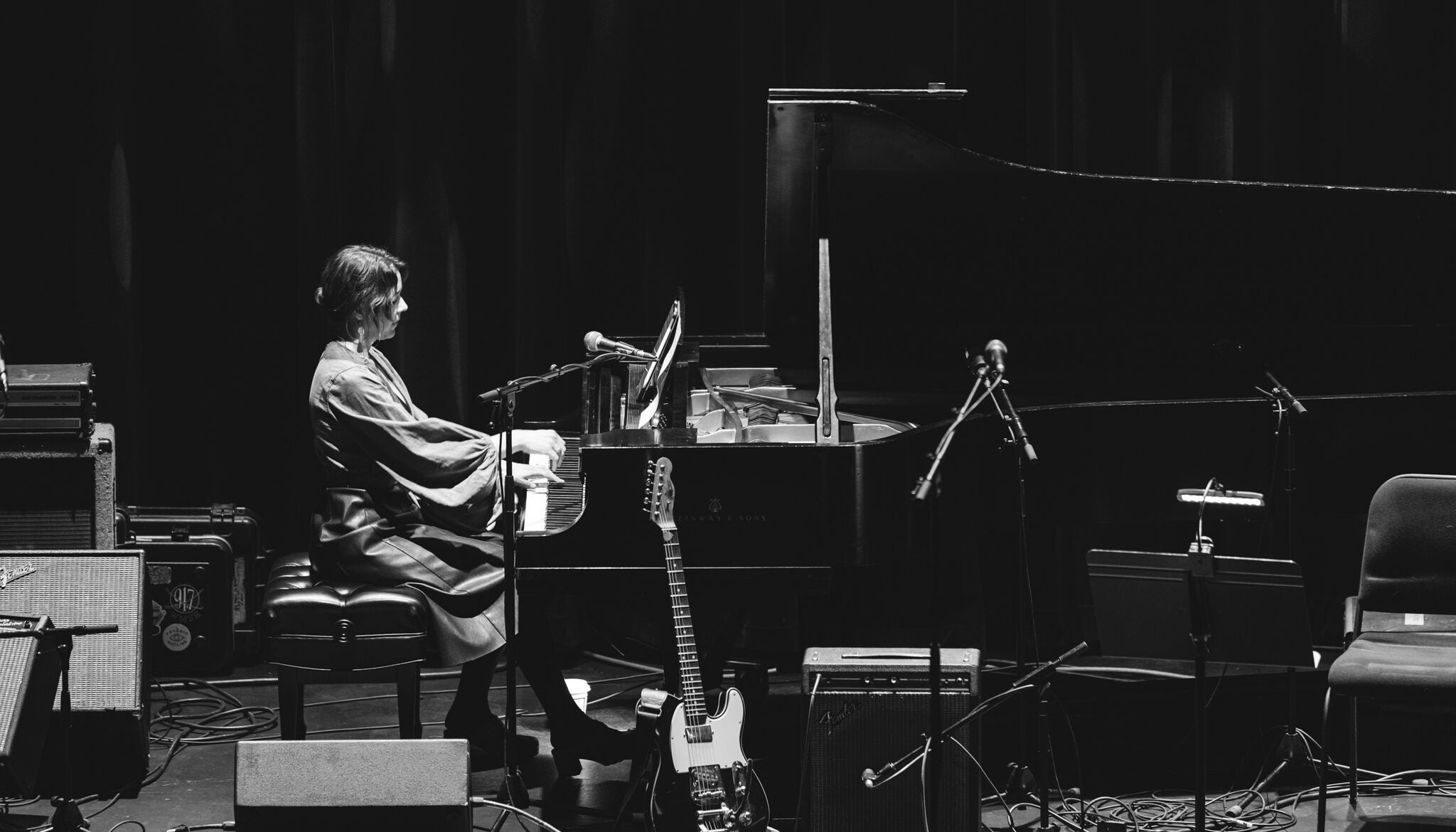Journalist Mark Harris tells us how “The Matrix” redefined our relationship with reality. Plus, Wisconsin’s Bill Malone on his lifelong love affair with country music. And standup comedian Zainab Johnson on how growing up in a large Muslim family shaped her sense of humor.
Featured in this Show
-
Taking The Red Pill: How 'The Matrix' Taught Us To Decode Reality
When “The Matrix” hit theaters 20 years ago, it was heralded for its technological breakthroughs — including the infamous and now ubiquitous “bullet time” cinematography — and its mind-bending story of rebellion against a world proven to be an artificial reality.
It became a surprise mega-hit, grossed over $460 million worldwide and launched a pair of sequels. According to Vulture’s Mark Harris, it also created a shorthand for us to communicate in and understand an online world.
“‘The Matrix’ has had a more kind of insidious secret effect on our culture. It’s not that we talk about the movie so much. It’s that we use its language,” Harris told WPR’s “BETA.”
“When people on the internet or on Reddit forums say, ‘Take the red pill’ — which is a line that comes from the original ‘Matrix’ which sort of means wake up — or even when you see a headline that says, ‘You’ve been doing such and such wrong your whole life’ as if life is this enigma that you just have to wake up to decode, that’s all the world that ‘The Matrix’ help build,” Harris said.
The movie follows a computer programmer/hacker named Neo, played by Keanu Reeves, who gets recruited into a group of rebels battling a group of sentient machines behind the artificial reality, known as the Matrix. Neo is reborn into the “real world,” which is a desolate existence where humanity is being farmed to power the race of machines.
Harris said that in this area, “The Matrix” takes its cues from the pop culture of the era including the “X-Files” — a show about needing to believe in a different reality — and especially “The Terminator” films that laid the groundwork for artificial intelligence run amok and the dystopian future of man-fighting machines.
“When I re-watched ‘The Matrix’ recently after 20 years, the thing I really noticed that surprised me was the influence of the “The Terminator” movies,” Harris said.
Released in 1999, at the precipice of online culture and the rise of the internet, the film anticipated a lot about our current lifestyle in 2019.
“It’s really interesting when you’re talking about a piece of influential pop culture, you always have to ask, ‘Was it prescient or did it just get lucky?’ And I think the answer is almost always both,” said Harris.
“The Matrix” seemingly forecasted the existence of living life online while hard-wired remotely. As Harris said, “it was one of the first movies to feature what I think of as a stay at home hero.”
“The world that followed ‘The Matrix’ made the kind of language that is used in ‘The Matrix’ a really good fit for social media,” Harris added.
The protagonists plug in to the eponymous Matrix in attempts to defeat the infrastructure behind it. The result is a world in which the characters live life in front of computer screens and consume hordes of data instantly. Harris pointed to this as another element of the film’s cultural staying power.
“If ‘The Matrix’ was smart enough to understand that we were all going to be looking at the world through laptops at some point, that’s really impressive, and I think it’s a reason it still stays relevant to a lot of people,” Harris said.
The film’s philosophy about waking up to the “real world” and fighting against a malevolent infrastructure has been rooted into current concepts such as fake news. Harris argued that its ambiguousness allows for everyone across the ideological spectrum to harness it as a lens for viewing reality.
“‘Take the red pill’ has become in some ways a rallying cry of the alt-right, but the structure that ‘The Matrix’ creates can be appropriated just as easily by Libertarians, because it’s really about the primacy of the individual, or by people on the left who could take it as an anti-corporate metaphor,” he said.
This speaks to the lasting influence that the film has in today’s discourse.
“One thing that’s very shrewd about the world-building in ‘The Matrix’ is that because it’s non-specific in the first movie, it can appeal to anyone,” said Harris. “‘The Matrix’ has never excluded anyone from enjoying it on ideological grounds.”
-
Distinguished Wisconsin Music Scholar Was Born Into Country Music
Bill Malone first fell in love with country music when he heard his mother singing songs while growing up in the 1930s on an eastern Texas cotton farm. The Madison resident and renowned country music scholar has forged a distinguished career out of the study and deep appreciation of country music, and his 1968 book, “Country Music, U.S.A.” is widely considered the definitive work on the musical genre.
Malone recently told WPR’s “BETA,” that country music was “the first music (I) had ever heard.” And that this music provided a way for his mother to cope “with a semi isolated existence on an east Texas cotton farm.”
In 1939 Malone’s father brought home a battery-powered Philco radio which introduced Malone to the “hillbilly” singers of the era, which would later serve as building blocks for a long career as a musician and music scholar.
Upon hearing these singers, Malone remembered seeing them as a paradox:
“In one sense I thought of them as being exotic beings … they sang about the Texas plains and the southern mountains and about lonely hobos. They seemed like a world far from what we were experiencing. But at the same time, they seemed like they could be brothers or cousins. They sounded like us, and they went out of their way to create a family feeling. They made us think we were part of the family.”
In 1954, Malone enrolled at the University of Texas and also started to play country music at parties and in the ramshackle honky-tonks that dotted the Austin music scene. One night Malone remembered seeing a young woman singing at a beer joint named Threadgill’s. He recalled a group of musicians showing up from the University of Texas Folk Music Club called the Waller Creek Boys. Among the people who were singing in the group was Janis Joplin.
“It was easy to see from the very beginning that she had a voice that surpassed any that we had,” Malone said.
While at college Malone stumbled across the “Anthology of American Folk Music,” a diverse collection of blues and folk music recordings from 1926 to 1933 that were musically defining for artists such as Bob Dylan, Joan Baez and Bruce Springsteen.
Hearing these recordings was a turning point in Malone’s trajectory in pursuing a career in music.
“It gave a validity for what I’d been singing and I was now beginning to treat it as an academic exercise,” he said.
As Malone pivoted to the academic study of music, his supervising professor presented him with the idea to write about the history of Nashville publishing.
“And I thought, ‘You mean you can actually write about something you love?’ That’s unheard of!” Malone said.
Malone happily accepted the idea but expanded its scope, branching out into writing a general history of American country music, from its folk music beginnings, to eventual radio commercialization.
His work was ultimately published in 1968 as “Country Music, U.S.A.” and the comprehensive book is used in many classrooms today as the definitive history of American country music. In researching and writing the book, Malone said he felt a sense of urgency to assemble a historical record of the music he loved so much.
“I felt like the general history (of country music) needed to be told quickly because I wasn’t sure what was going to happen to this music,” he said. “Rock ‘n’ roll had come along first with Elvis in 1954, and then record companies began looking for people who sounded like Elvis. There was a period of time when traditional country music as I knew it virtually disappeared from the jukeboxes and radio DJ shows.”
Malone’s unique position of straddling both the academic and performance worlds of country music gave him a distinctive perspective when writing about the genre, and its shortcomings.
“I had an understanding that people who came from the outside might not have had. On the other hand, it probably made me blind to certain features of the music,” Malone said. “At first I didn’t realize just how nativist and jingoistic it could be. I didn’t realize just how neglected women had been. Women were part of the music since the time it was commercialized, but they were generally made to feel subordinate to the men in the business. And I didn’t really realize just how eclectic the music was at the time; just how strongly African-American culture had touched the music from the beginning, and how it has continued to do so throughout its history.”

Bill and Bobbie Malone hosting the “Back To The Country” radio show. Photo courtesy of the MalonesDuring his time as a professor, Malone met his future wife and longtime music partner, Bobbie, at a music venue in Austin. She first saw him on stage singing an Ernest Tubb song. As the two continued their relationship sparked by a shared love of country music, Bill recalled:
“She learned I had a mandolin in the closet, and she wanted to be a part of what I was doing,” he said. “So we got the mandolin out of the closet, and a friend taught her a few chords on it. And we did our first show at a Presbyterian church.”
Bill and Bobbie continue to perform music together today at various venues in Wisconsin, and they currently co-host a weekly country music radio show on WORT-FM in Madison.
When asked about today’s contemporary country music Bill said:
“In today’s scene I look for people who don’t necessarily imitate the past, but build upon it. They have a sense of roots, they seem to have a sense of reverence for the working class roots of the music. And then they take that and make their own sound.”
This fall, documentary filmmaker, Ken Burns will release his latest film, “Country Music.” The documentary series will feature Bill as a consultant and historical authority on the genre. When asked about the experience of recording his interviews in New York, and later visiting Burns’ studio in New Hampshire for a pre-screening of the film, he recalled:
“It was a wonderful experience. Almost everybody was tearful by the time it was over. For one thing, to think of all the people that you see on the screen who have died since the filming began. In my case I was tearful because (my mother), was the person to introduce me to this music. And to me it’s her culture, and I’m just pleased that I’m able to keep it alive and to document it. (Watching the film) was a validation of my life’s work and of the music that I’ve always loved.”
-
Getting Honest With Comedian Zainab Johnson
You may think finding a voice as one of 13 siblings would be difficult. Not for Zainab Johnson.
The comedian and “HonestTEA with Z” podcast host was raised as a devout Muslim in Harlem, New York.
Zainab began to find herself as a teenager. At age 15, she stopped the traditional act of covering up and started to explore herself as a young woman in the world.
“For a very long time I hated being Muslim. Not the actual belief of it, just the practice of it,” Johnson told WPR’s “BETA.” “There were certain things in the practice of Islam that was a major inconvenience in my life as a kid and it immediately set me apart from everybody else and I didn’t like that.”
When she was 17, tragedy struck. While visiting a friend in Atlanta, Georgia, Zainab got out of their stalled car to push it. The next thing she remembers, she was in an ambulance. A drunk driver in a truck had pinned her and another woman to the car and attempted to flee. Zainab would spend the next year relearning to walk. The other woman would lose a leg.
“Something like that happening at that age is really traumatic. It one, makes you very grateful to be spared in the very least, but also it made me really look within,” Johnson said. “I think being hit by the truck it made me really make sure that what’s in me has a strong foundation.”
Zainab pivoted to earning a mathematics degree and became a teacher.
“My parents went to college, but hadn’t finished, and I just had it set in my mind that I was going to be the next generation that did something at least a little bit better,” Johnson said. “So I was dead set on at least getting a degree.”
She also ended up taking an elective course on the history of religion that helped her gain a new perspective on her faith.
“It made me research where my faith lied and I became proud of it,” she said.
After her dad died and a friend took a leap in moving to Los Angeles, Johnson reflected on what her true calling was. She asked herself, “What are my intentions in this life? What am I seeking? What’s my legacy? What am I looking to do?”
The answer came in the art of stand-up comedy, but she hopes she can continue to teach through her routines.
“It does feel better when people can take something of substance from my act,” Johnson said.
It certainly is giving her the platform to provide perspective on her religion and share how her faith influences her comedy.
“When I started comedy, any images of Muslims that I saw on TV or in media, there was a fear there,” Johnson said. “I am Muslim and I don’t want people to fear me and I don’t want people to think I have these same beliefs, so I have to give them another alternative to this identity.“
Zainab feels like she found her voice in comedy early on. It’s something she views as an asset in her occupation.
“Comedians spend years trying to find their voice,” Johnson said. “This is who I am. You’re either like me and you’re gonna identify with who I am because I am a reflection of you, or I am completely different and you’re going to enjoy the journey of exploring somebody else.”
She’s also allowed her voice to evolve and grow as a comedian, setting her apart from her peers.
“I’ve gotten more comfortable in silence,” Johnson revealed. “That’s not the comfort place for most comedians, but that’s where I found my comfort — when the crowd is completely silent.”
This confident knowledge of self and of her inner (and comedic) voice also grounds her and sets the parameters for her comedy.
“The only thing that is off limits in my stand-up comedy is me forgoing who I am for the sake of something funny,” she said.
Growing up with a dozen siblings, comedy also provides a rare opportunity to have an independent voice and total creative control, which might be what subliminally drew Zainab to it.
“Maybe I chose stand-up because I stand there alone and it’s just me and if there’s glory, I get all the glory. If I fail, I fail alone. I think that may be the sub-conscious thing about stand-up that appeals to me,” she said.
But that still doesn’t spare her family from being a large part of her act.
Episode Credits
- Doug Gordon Host
- Karl Christenson Producer
- Adam Friedrich Producer
- Doug Gordon Producer
- Steve Gotcher Technical Director
- Mark Harris Guest
- Zainab Johnson Guest
- Bill C. Malone Guest
Wisconsin Public Radio, © Copyright 2025, Board of Regents of the University of Wisconsin System and Wisconsin Educational Communications Board.




